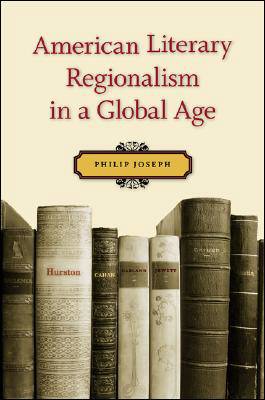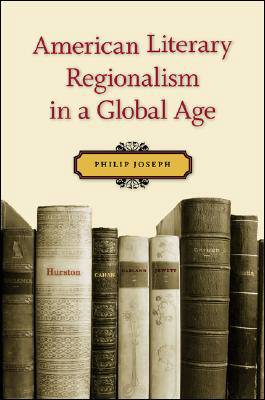
- Retrait gratuit dans votre magasin Club
- 7.000.000 titres dans notre catalogue
- Payer en toute sécurité
- Toujours un magasin près de chez vous
- Retrait gratuit dans votre magasin Club
- 7.000.0000 titres dans notre catalogue
- Payer en toute sécurité
- Toujours un magasin près de chez vous
Description
In this distinctive book, Philip Joseph considers how regional literature can remain relevant in a modern global community. Why, he asks, should we continue to read regionalist fiction in an age of expanding international communications and increasing nonlocal forms of affiliation? With this question as a guide, Joseph places the regionalist tradition of the late nineteenth and early twentieth centuries at the center of a contemporary conversation about community. Part of the challenge, Joseph shows, is to distinguish between versions of regionalism that speak nostalgically to modern readers and those that might enter actively into a more progressive collective dialogue. Examining the works of well-known writers including Hamlin Garland, Abraham Cahan, Willa Cather, Zora Neale Hurston, and William Faulkner, Joseph argues that these regionalist authors share a vision of local communities in open discourse with the external world -- capable of shaping public thought and policy and also of benefiting from the knowledge and experiences of outsiders. Their fiction depicts a range of localities, from Jewish American neighborhoods and midwest farming communities to southern African American towns and southwestern mixed-race parishes. Their characters are often associated with the literary-artistic process, a method stressing open-ended critique that -- unlike journalistic, philosophical, or legal processes -- ensures open dialogue.Joseph takes his argument beyond the boundaries of literary scholarship by engaging with art critics such as Lucy Lippard, distance-learning opponents such as David Noble, and civil society proponents such as Robert Putnam and Michael Sandel. Like civil society advocates today, regionalist writers used the idea of community as a discursive topos and explored how values including home and neighborhood were reconciled with such democratic ideals as individual self-determination and collective empowerment.
Spécifications
Parties prenantes
- Auteur(s) :
- Editeur:
Contenu
- Nombre de pages :
- 248
- Langue:
- Anglais
Caractéristiques
- EAN:
- 9780807131886
- Date de parution :
- 01-01-07
- Format:
- Livre relié
- Format numérique:
- Genaaid
- Dimensions :
- 163 mm x 229 mm
- Poids :
- 494 g

Les avis
Nous publions uniquement les avis qui respectent les conditions requises. Consultez nos conditions pour les avis.






